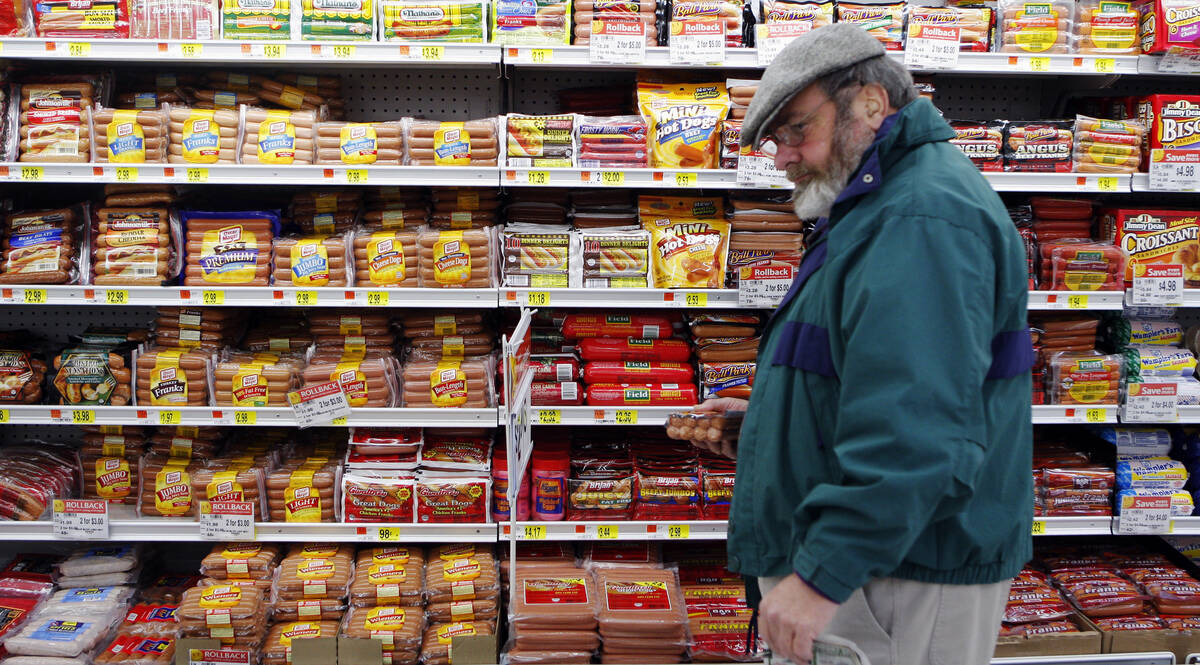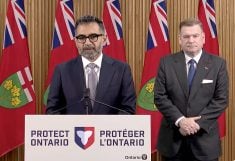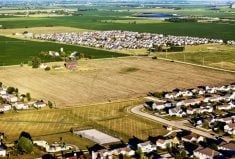The national election debate on agriculture tackled many of the major issues in the sector including trade, climate change, labour and risk management programs.
The debaters included:
- Luc Berthold of the Conservative Party
- Marie-Claude Bibeau of the Liberal Party
- Alistair MacGregor of the NDP
- Kate Storey of the Green Party
The debate, hosted by the Canadian Federation of Agriculture, was moderated by Kelsey Johnson, a Reuters journalist who was formerly an agriculture reporter with iPolitics and a Farmtario columnist.
Read Also

Canada seventh-most influential country on agri-food
Report from Dalhousie University and MNP shows Canada ranks seventh among G20 countries on agri-food influence.
The occasion was a rare opportunity for agriculture to get some focus and questions to be posted directly to parties on the subject.
Bibeau a target
It was no surprise that Liberal Minister of Agriculture and Agri-Food Marie-Claude Bibeau was the target of the most intense criticism by the other members, especially Conservative Agriculture Critic Berthold, a Quebec Member of Parliament (MP).
Berthold says that agriculture needs to be a high priority of any government’s cabinet. He worked to create the idea that the Conservatives and Liberals had different priorities when it comes to agriculture.
“The Conservative Party wants to make agriculture the top priority. The Liberals, it is not a priority,” he said through a translator.
MacGregor, an NDP representative on the Standing Committee for Agriculture and a British Columbia MP, may have been the most surprising to those watching the debate. He understood the nuances of agriculture policy and the reality of farms, talking about their significant use of technology.
He did, however, make a distinction between what he saw as unsafe genetic modification of foods and safe gene editing of foods. He talked about the potential in agriculture, but also did not mention much that is actually NDP policy, instead focusing on his experience and opinion.
Storey, an organic farmer running for the Green Party in Manitoba, was criticized by the other parties when she called the Temporary Foreign Workers program “modern slavery”. The program brings workers in what the government calls lower skilled vocations, to Canada to work in agriculture and food and then gives them a path to permanent residency.
“What a lack of respect for our producers,” says Bertold. “Do you really think our producers treat their employees like slaves?”
“I am shocked to hear you say that,” said Bibeau of Storey’s comments. “It is shocking that you are putting all farmers in the same basket that they are poor environmental stewards, of the labour market.”
Creating value
Bibeau spent the debate touting the Liberal’s programs over the past four years, including the creation of the Protein Industries Supercluster which she said could deliver $4.5 billion in value to the Canadian economy.
Berthold pointed out the problem areas for the Liberals relating to agriculture and trade, including greatly diminished trade to Italy in durum wheat, issues with getting pulses into India and the current decline in canola heading to China.
“If we want to reach the targets put out by the Barton report, then agriculture needs to be the government’s top priority,” he said. “Farmers can’t sell their produce unless there is a market to do so.”
The Barton report named agriculture as one of the most promising economic sectors for growth and set a goal for increased exports. Dominic Barton, the global consultant whose name is associated with the report, was recently named Canadian ambassador to China.
MacGregor pointed out the value of research into food innovations that can create more demand for products.
Storey said Canada’s food quality needed to improve.
“I disagree with what everyone else has said as far as Canada having quality food, at least when it comes to chemical residues.”
She said the Green Party aims to test more food and replace 15 per cent of imports with Canadian food.
Supply management supported
All the candidates supported supply management, although with some caveats by the Green Party.
Berthold questioned why chicken and egg producers have not had a compensation package due to trade challenges, as was announced for dairy farmers just before the election.
He said a Conservative government would make sure chicken, egg and dairy farmers are all supported.
MacGregor said compensation is important, but “It would be absolutely preferable if we didn’t need to do that in the first place”, criticizing the Liberals and Conservatives for giving away market share in trade deals.
Storey said the Green Party is not happy with corporate consolidation of supply managed farms, along with its lobbying power. It would make smaller farms exempt from supply management and would open up the market for raw milk. She also questioned why American milk continued to be allowed into Canada when BST (a hormone that results in greater milk production) continues to be allowed there when it is banned in Canada. (Few American farms continue to use BST, as few buyers will now accept BST treated milk in the U.S.)
Bibeau questioned the Conservative’s commitment to supply management, and promoted the Liberal maintenance of supply management throughout challenging trade deal negotiations.
Activists entering farms not supported
None of the debaters supported activists entering farms without permission. Trespassing isn’t allowed, they all said.
“It’s illegal and second we need to respect the rights of our farmers and biosecurity,” said Bibeau.
China a challenge
The debaters differed in their views on the severity of challenges with China.
Berthold said the Liberal government has not done enough, and that the agriculture minister should have been on a plane to China to make Canada’s case.
“We’ve just been sitting on our hands,” he said.
Berthold added that there should have been a complaint to the World Trade Organization and he questioned why the government has not moved against the Asian Infrastructure Bank.
Bibeau said that the issue is complex, and the government has supported farmers, including increases to the Advanced Payments Programs and an expanded AgriStability program.
Storey said that low crop prices have little to do with China, as about the same amount of canola has been sold on global markets, and the problem with canola is the bumper crop of 2018.
“China is just grandstanding,” she said.
Canada used to get a premium in the world and that ended when the former Conservative government ended the Canadian Wheat Board, she said.
MacGregor said that other measures need to be brought to bear on China.
“We need to show China that we’re not just going to roll over and take it,” he said, pointing to the trade deficit with China.
Helping farms with climate change
The environment was woven throughout the debate, but there was a specific question from the moderator about helping farms build resilience around climate change.
The Green Party aims to increase regenerative agriculture, said Storey. There are many options, she said.
“We have to incentivize farmers not to bulldoze every bit of their land,” she said.
MacGregor said that Canada has an opportunity to show the world what agriculture that’s a net carbon sink can look like.
Berthold said farmers have already been taking steps on mitigating climate change but they haven’t been recognized. He says there’s more potential for farmers to lessen their climate impact.
Bibeau said the work that farmers already do should be recognized. She also says farmers have a key role in reducing greenhouse gases and the Liberal government has invested in climate mitigation in agriculture.
The debate was broadcast on YouTube and Facebook and there were just over 200 people watching at any time on the YouTube feed.
The debate can still be watched by searching for National Agriculture Leaders’ Debate on YouTube.















